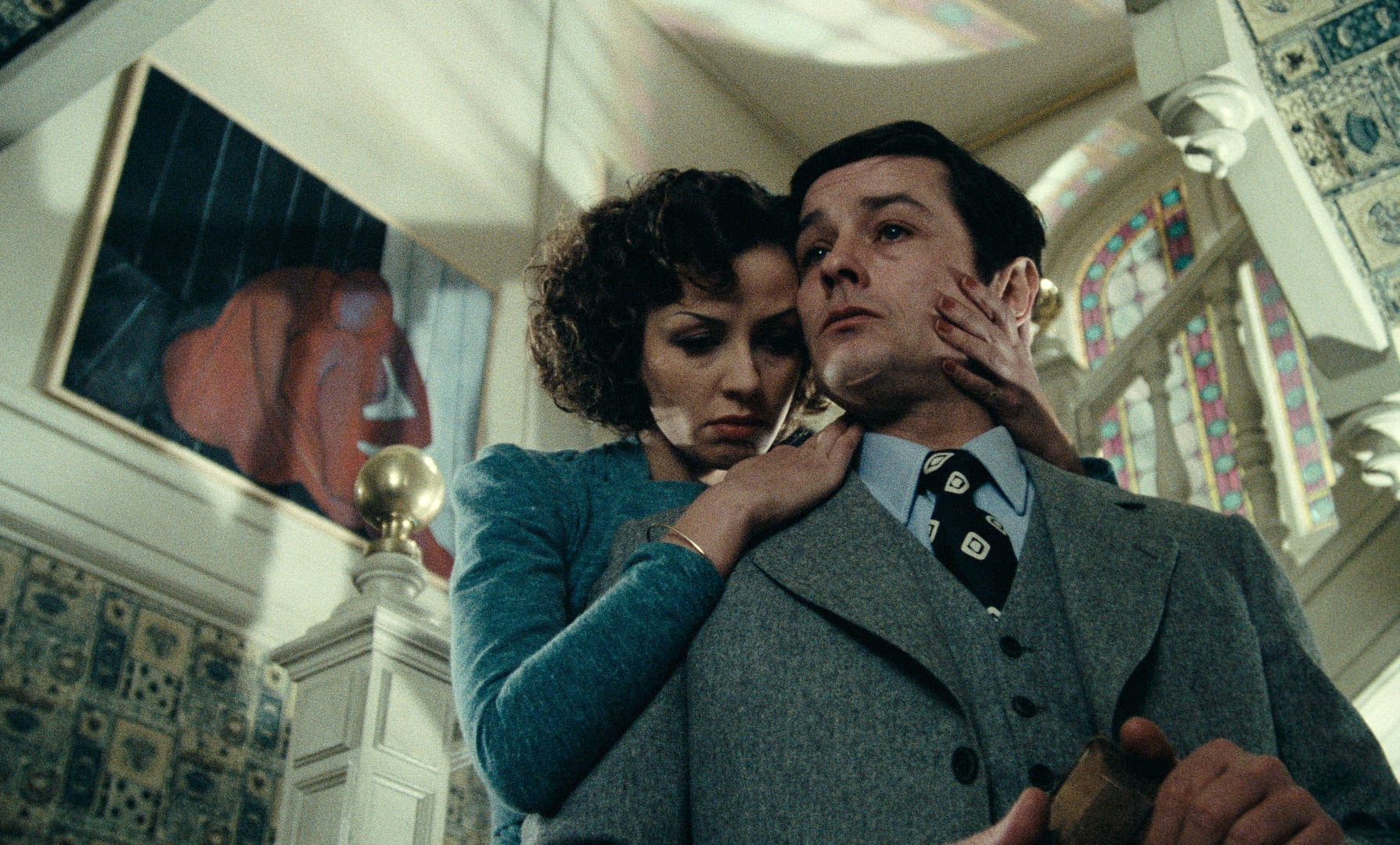RELATED ARTICLE
La piscine: Savage Water
The Criterion Collection

When Joseph Losey directed Mr. Klein in France in late 1975 and early 1976, he was just entering the last decade of a long, varied career that had taken him from his native American Midwest to Paris via New York, Moscow, Hollywood, Italy, England, Spain, Mexico, and Norway. The repeated exiles and displacements that brought about that trajectory are mirrored in a highly diverse set of films (more than thirty features) that earned Losey a reputation as a brilliant but difficult man and a director capable of duds as well as masterpieces. There is, however, a consensus that Mr. Klein belongs to the latter category.
Losey was politicized in the radical theater of New York in the thirties, collaborated with Bertolt Brecht, and later joined the Communist Party. As a result, he ended up leaving the United States to escape the House Un-American Activities Committee hearings, settling in the United Kingdom in 1953—but not before making a name for himself in Hollywood with a handful of economical and politically incisive movies. His first feature, The Boy with Green Hair (1948), is an allegory about intolerance, and 1950’s The Lawless is a critique of the violent mob. It was, however, a set of noir dramas—including The Prowler (U.S., 1951), The Big Night (U.S., 1951), and Time Without Pity (UK, 1957)—that propelled him into the pantheon of filmmakers established by a group of radical auteurist critics in Paris, the Mac-Mahonistes, who revered Losey as one of the “four aces” of Hollywood genius, alongside Fritz Lang, Otto Preminger, and Raoul Walsh. The ultraformalist Mac-Mahonistes had little interest in Losey’s left-wing politics, though. In their manifesto, published in Cahiers du cinéma in August 1959, their leader, Michel Mourlet, posits that “man becomes God through mise-en-scène,” and that Losey, among a chosen few, possessed “the secret of mastery over actors and decor.” In his book of interviews Kazan Losey, Positif’s Michel Ciment, Losey’s greatest champion, more rationally praises the director’s work as a combination of “an exacting formal project, an exploration of the ways the individual is socially determined, and a dive into the darkest recesses of the psyche.”
Working in different national film industries, on a mixture of personal projects and commissions, Losey had a post-Hollywood career that was, in Ciment’s words, “a succession of ups and downs, storms and moments of happiness.” There was continuity with his Hollywood work in the noir vein with films such as Time Without Pity, Blind Date (1959), and The Criminal (1960). The more baroque Eva (1962) attracted attention with its Venice and Rome locations and, especially, Jeanne Moreau’s performance as a malevolent femme fatale. More critically acclaimed was a trilogy of collaborations with the British playwright Harold Pinter—The Servant (1963), Accident (1967), and The Go-Between (1971)—the last of which won the Palme d’Or at Cannes. What Pinter brought to the fore in Losey’s work was ambiguity and the exploration of identity—themes central to Mr. Klein. Departing from this dramatic mode are oddities such as the spoof spy thriller Modesty Blaise (1966), the Henrik Ibsen adaptation A Doll’s House (1973), and the filmed opera Don Giovanni (1979)—a side of Losey’s output that helps explain some critics’ difficulties in pinpointing him as an auteur. But despite any inconsistencies in his films’ themes, topics, and locations, Losey’s command of atmosphere, his ability to build tension, and his delight in the implicit are qualities that find supreme expression in Mr. Klein.

